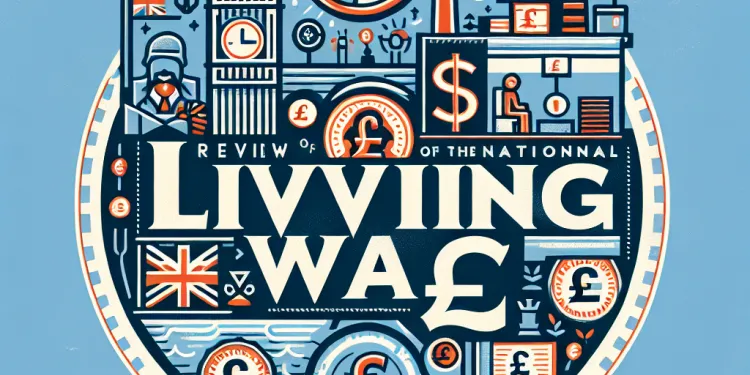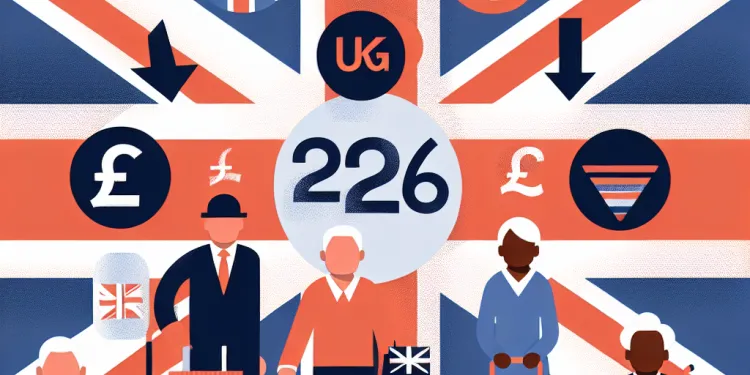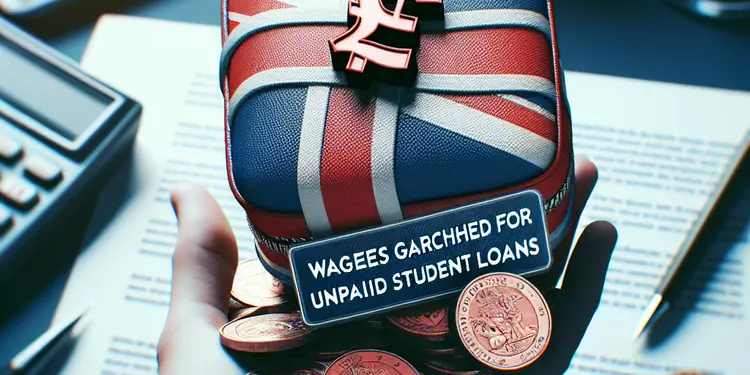
Find Help
More Items From Ergsy search
-

UK national living wage increase 2026
Relevance: 100%
-

What is the new UK National Living Wage for 2026?
Relevance: 85%
-

Why is the National Living Wage being increased?
Relevance: 80%
-

Will the increase in the National Living Wage affect inflation?
Relevance: 75%
-

How can I calculate my new earnings based on the National Living Wage increase?
Relevance: 67%
-

Is the Living Wage Foundation's rate the same as the National Living Wage?
Relevance: 66%
-

Who is eligible for the National Living Wage?
Relevance: 65%
-

How is the National Living Wage calculated?
Relevance: 65%
-

How does the National Living Wage differ from the National Minimum Wage?
Relevance: 64%
-

Are apprentices entitled to the National Living Wage?
Relevance: 64%
-

How often is the National Living Wage reviewed?
Relevance: 62%
-

How does the UK National Living Wage compare internationally?
Relevance: 60%
-

Are employers legally required to pay the National Living Wage?
Relevance: 60%
-

Are zero-hour contract workers entitled to the National Living Wage?
Relevance: 59%
-

Where can I find official announcements on the National Living Wage?
Relevance: 58%
-

What happens if an employer pays below the National Living Wage?
Relevance: 57%
-

Does the National Living Wage increase mean my taxes will change?
Relevance: 51%
-

Is there a change in National Insurance rates for 2026?
Relevance: 45%
-

How often do wage rates change in the UK?
Relevance: 41%
-

How does the National Living Wage increase impact small businesses?
Relevance: 34%
-

Will the personal allowance be altered for the 2026 tax year?
Relevance: 33%
-

What are HMRC Income Tax Changes in April 2026?
Relevance: 30%
-

Will income thresholds for tax reliefs be revised in 2026?
Relevance: 30%
-

What is the state pension age in the UK in 2026?
Relevance: 29%
-

Who will be affected by the state pension age changes in 2026?
Relevance: 29%
-

When will the new National Living Wage come into effect?
Relevance: 29%
-

What are the HMRC income tax changes coming into effect in April 2026?
Relevance: 28%
-

What is the impact of the 2026 changes on grandparent visitation rights?
Relevance: 28%
-

Will personal savings allowances be updated in 2026?
Relevance: 28%
-

What are the state pension age changes in 2026 in the UK?
Relevance: 28%
-

Are there any changes to the state pension age in 2026?
Relevance: 27%
-

Do gig workers have the right to a minimum wage?
Relevance: 27%
-

Are there changes expected for tax credits in April 2026?
Relevance: 27%
-

How have child custody laws changed in 2026?
Relevance: 27%
-

How will dividend taxation change in April 2026?
Relevance: 26%
-

Has the process for adoption changed in 2026?
Relevance: 26%
-

Are there any planned changes to tax bands for April 2026?
Relevance: 26%
-

Are there further changes expected after 2026?
Relevance: 26%
-

Can my wages be garnished for unpaid student loans?
Relevance: 26%
-

How important is it to get a flu vaccine in 2026?
Relevance: 26%
Introduction to the National Living Wage Increase
The UK government has announced plans for a significant increase in the national living wage set to take effect in 2026. This policy aims to improve the economic well-being of low-income workers across the country, affecting millions of employees and numerous businesses. The change is part of a broader strategy to ensure fair wages and living standards as economic challenges continue to evolve.
Details of the Wage Increase
The national living wage is set to rise to a level that reflects both inflation and the increased cost of living. Although the exact figure for 2026 has not been finalized, projections suggest a substantial increment aimed at aligning wages more closely with the actual costs faced by workers. This increase will particularly benefit those in the lowest-paying sectors, such as retail, hospitality, and health care, where many employees currently earn near the minimum wage threshold.
Impact on Workers
The planned increase in the national living wage will directly impact workers by providing higher take-home pay, which could improve their quality of life. This change is expected to lift thousands of workers and their families out of poverty, reducing reliance on government assistance programs. Additionally, the increase is anticipated to foster greater employee satisfaction, as workers feel more fairly compensated for their efforts, which could lead to improvements in productivity and morale within workplaces.
Business Considerations
For businesses, the living wage hike presents both challenges and opportunities. Companies will need to adjust their payrolls to accommodate higher wage bills, which may initially seem daunting. However, investing in employees by ensuring fair wages can lead to lower staff turnover and higher productivity, potentially offsetting the increased costs. Businesses might also experience enhanced reputational benefits, as consumers increasingly favor ethical and socially responsible companies.
Government and Economic Implications
The national living wage increase signifies the government's commitment to addressing income inequality and boosting the domestic economy by enhancing consumer spending power. While there could be concerns about potential inflationary pressures, the overall strategy focuses on building a more balanced and fair economic environment. Policymakers will continue to monitor the impacts of the wage hike and make adjustments as necessary to support both workers and businesses effectively.
Conclusion
The upcoming increase in the UK’s national living wage in 2026 represents a crucial step towards fostering a more equitable society by ensuring workers receive wages that reflect the cost of living. This policy has the potential to bring meaningful improvements to the lives of many while promoting sustainable business practices. Ongoing dialogue between the government, businesses, and workers will be essential to successfully implementing this change and achieving the desired positive outcomes.
Introduction to the National Living Wage Increase
The UK government will make the national living wage higher in 2026. This means people who earn less money will get paid more. It will help many workers and businesses all over the country. The goal is to make sure people have enough money to live well, even when things change.
Details of the Wage Increase
The national living wage will go up because the cost of things people buy is going up too. We do not know the exact new amount for 2026 yet, but it will be a lot more to match what people need. This will help workers, especially those in jobs like shops, hotels, and health care, where pay is often low.
Impact on Workers
When the national living wage goes up, workers will get more money. This means they can have a better life and won't need as much help from the government. Workers will feel happier and might work harder because they feel their pay is fair.
Business Considerations
Businesses will need to pay their workers more, which can be tough at first. But paying fairly can mean workers stay longer and work better. It can also make the business look good because people like companies that treat workers well.
Government and Economic Implications
The wage increase shows the government wants to make sure everyone can earn enough money. It is also meant to help the economy by giving people more money to spend. Some people worry this could make things more expensive, but the government will watch and make changes if needed to help everyone.
Conclusion
Raising the national living wage in 2026 is an important move to help people live better lives. It aims to make wages fairer and support lasting good practices in businesses. The government, businesses, and workers need to keep talking to make this change work well for everyone.
Frequently Asked Questions
What is the new UK National Living Wage for 2026?
The new UK National Living Wage for 2026 has not been officially announced yet. Please refer to government announcements for the latest updates.
When will the new National Living Wage come into effect?
The new National Living Wage rates typically come into effect on April 1st each year.
Who is eligible for the National Living Wage?
Employees aged 23 and over are eligible for the National Living Wage in the UK.
How often is the National Living Wage reviewed?
The National Living Wage is reviewed annually by the UK government.
Why is the National Living Wage being increased?
The National Living Wage is increased to ensure it reflects the cost of living and to provide fair compensation for workers.
How is the National Living Wage calculated?
The National Living Wage is calculated based on recommendations by the independent Low Pay Commission, which considers various economic factors.
How does the National Living Wage differ from the National Minimum Wage?
The National Living Wage is higher and applies to workers aged 23 and over, while the National Minimum Wage has different rates for younger workers.
What should I do if my employer does not pay the new National Living Wage?
You should first discuss the issue with your employer. If not resolved, you can contact the Advisory, Conciliation and Arbitration Service (Acas) for advice.
Are apprentices entitled to the National Living Wage?
No, apprentices under the age of 19 or in the first year of their apprenticeship are entitled to a different, lower minimum wage.
Will the increase in the National Living Wage affect inflation?
An increase in the National Living Wage can contribute to inflationary pressures, but its overall effect depends on various economic factors.
How does the National Living Wage increase impact small businesses?
Small businesses may face higher costs due to the increased wages, which could impact their pricing, hiring, or overall financial planning.
Where can I find official announcements on the National Living Wage?
Official announcements can be found on the UK government's official website or through official press releases.
How often do wage rates change in the UK?
Wage rates, including the National Living Wage, typically change once a year, usually in April.
Does the National Living Wage increase mean my taxes will change?
An increase in wages could lead to changes in your tax band, affecting the amount of tax you pay, depending on your total income.
Are employers legally required to pay the National Living Wage?
Yes, it is a legal requirement for employers to pay eligible employees the National Living Wage.
What happens if an employer pays below the National Living Wage?
Employing someone at a rate below the National Living Wage can lead to penalties for the employer and legal recourse for the employee.
Are zero-hour contract workers entitled to the National Living Wage?
Yes, zero-hour contract workers are entitled to the National Living Wage for the hours they work.
How does the UK National Living Wage compare internationally?
The UK's National Living Wage is comparatively high, but living costs and average wages vary significantly across countries.
Is the Living Wage Foundation's rate the same as the National Living Wage?
No, the Living Wage Foundation's rate is voluntary and typically higher, reflecting a calculated living cost in the UK, distinct from the statutory National Living Wage.
How can I calculate my new earnings based on the National Living Wage increase?
To calculate new earnings, multiply the new hourly rate by the number of hours you work monthly or annually.
How much will people get paid in the UK in 2026?
We don't know what the new UK National Living Wage will be in 2026. The government will tell us the new amount later. Keep checking for updates from the government.
When will the new National Living Wage start?
The new rules for the National Living Wage usually start on April 1st every year.
Who can get the National Living Wage?
Workers who are 23 years old or older can get the National Living Wage in the UK.
How often do they check the National Living Wage?
People check the National Living Wage every year. This helps make sure it is fair for everyone.
The UK government looks at the National Living Wage every year to see if it needs to be changed.
Why is the National Living Wage going up?
The National Living Wage is going up to help people have more money for things they need like food and bills. This helps people to have a better life. You can use pictures or write notes to remember this. Tools like a calculator can help you see how much more money you will get.
The National Living Wage is the money people get for the work they do. It is made higher so that workers can afford the things they need to live. This way, workers are paid fairly.
How do they work out the National Living Wage?
The National Living Wage is the lowest money you can get paid for work. It is different from the Minimum Wage.
Here is how they decide the National Living Wage:
- They think about how much money people need to pay for things like food and bills.
- They get advice from experts who know about money and jobs.
- They talk to businesses and workers about what is fair.
If you find reading hard, you can use these tools:
- Audio books to listen instead of read.
- Reading apps that read text out loud.
- Ask a friend or family member to help explain.
The National Living Wage is the amount of money workers must be paid. An independent group called the Low Pay Commission suggests this amount. They look at different money and job facts to decide what is fair.
What is the difference between the National Living Wage and the National Minimum Wage?
The National Living Wage and the National Minimum Wage are both types of pay.
The National Living Wage is for people aged 23 and over. It is the lowest pay they can get per hour.
The National Minimum Wage is for people who are younger, from 16 to 22 years old. It is the lowest pay they can get per hour.
Both of these wages help make sure people get fair pay for their work.
If you need help understanding this better, you can ask someone to explain it to you or use a computer tool like a speech reader to read it aloud.
The National Living Wage is the money people aged 23 and older get for working. It is more money than the National Minimum Wage. The National Minimum Wage is for younger workers and has different amounts for different ages.
What to Do if Your Boss Does Not Pay the Right Money?
If your boss does not pay you enough money, this is what you can do:
- Talk to your boss: Ask them why you are not getting the right money. It might just be a mistake.
- Write it down: Keep notes about what you earn and hours you work. This helps if you need to show someone.
- Get help: You can talk to a person who helps workers, like a union or a charity.
- Check your money: Use tools to check if you are getting the right money. You can find these tools online.
- Tell the government: You can tell people in charge if you still do not get the right money. They can look into it.
Remember, you should always get paid the right money for your work!
First, talk to your boss about the problem. If it doesn't get fixed, you can ask for help from a group called Acas. They give advice.
Do young workers on training schemes get the National Living Wage?
No, if you are an apprentice and you are under 19 or in your first year, you will get a different, lower pay.
Will higher pay make things cost more?
When the government raises the National Living Wage, prices of things we buy might go up. But how much prices go up depends on other things happening in the economy too.
How does the National Living Wage increase affect small businesses?
The National Living Wage is the lowest money workers get for their job. When this wage goes up, it means workers get more money.
For small businesses, paying workers more money can be hard. They might have to use more money to pay their workers. This can make it harder for the business to save money or buy things they need.
To help understand better, you can:
- Ask someone to explain it in simple words.
- Use pictures or drawings to show how things change.
- Break down the information into smaller parts.
Small businesses might have to pay more money to their workers. This can make things cost more. It might also make it harder for these businesses to hire new people or plan their money.
Where can I find official announcements on the National Living Wage?
You can find news about the National Living Wage in some places:
- Go to the government website. They have the latest news.
- Look at news websites like the BBC.
- Check official reports in newspapers.
If you need help reading:
- Ask someone to read it with you.
- Use a text-to-speech tool to listen to the information.
You can find news from the UK government on their website. Look for press releases from them too.
How often do pay rates change in the UK?
Pay rates in the UK can change at different times. Sometimes they change once a year, but it can be more or less.
Here are some tools to help understand pay rates:
- Use a calendar to mark when pay changes happen.
- Ask someone you trust to explain changes to you.
Pay rates, like the National Living Wage, usually change once a year. This often happens in April.
Will my taxes change if the National Living Wage goes up?
If you start to earn more money, you might have to pay more tax. How much tax you pay depends on how much money you make in total.
Do bosses have to pay the National Living Wage by law?
Yes, the law says bosses must pay workers the National Living Wage if they qualify.
What if a boss pays less than the National Living Wage?
If a boss pays workers less than the National Living Wage, it is not allowed. This means the boss might get in trouble.
Tools that can help you understand:
- Use simple charts to see what the minimum pay should be.
- Use apps or websites that help check if your pay is right.
If a boss pays a worker less than the National Living Wage, the boss can get into trouble. The worker can also take legal action to make sure they get what they are owed.
Do workers on zero-hour contracts get the National Living Wage?
Yes, people who work on zero-hour contracts must get the National Living Wage for the hours they work.
How does the UK National Living Wage compare to other countries?
The National Living Wage is the money workers in the UK must be paid. Let's see how it matches up to what people earn in other countries.
Things to try:
- Look at charts showing pay in different countries.
- Use simple lists to compare countries.
- Ask someone to explain if you're not sure.
- Use online tools that help with reading.
Remember, it's okay to ask questions and get help!
The National Living Wage in the UK is quite high. But, the cost to live and how much money people usually earn can be very different in each country.
Is the Living Wage Foundation's rate the same as the National Living Wage?
No, the Living Wage Foundation's rate is different. The Living Wage Foundation suggests how much money people need to live a good life. The National Living Wage is the money the government says you should get paid. They can be different amounts.
If you want help with reading, try using tools that read text out loud or highlight words as you read.
No, the Living Wage Foundation's rate is a choice. It is usually more money. This is because it is based on what people need to live in the UK. It is different from the legal National Living Wage.
How do I work out my new pay if the National Living Wage goes up?
To find out how much money you will make, do this:
1. Look at the new amount you earn each hour.
2. See how many hours you work in a month or a year.
3. Multiply (times) the new hourly amount by the number of hours you work.
Here are some tools or tips to help:
- Use a calculator to make it easier.
- Ask someone you trust if you need help.
Useful Links
Have you found an error, or do you have a link or some information you would like to share? Please let us know using the form below.
-->
This website offers general information and is not a substitute for professional advice.
Always seek guidance from qualified professionals.
If you have any medical concerns or need urgent help, contact a healthcare professional or emergency services immediately.
Some of this content was generated with AI assistance. We’ve done our best to keep it accurate, helpful, and human-friendly.
- Ergsy carfully checks the information in the videos we provide here.
- Videos shown by Youtube after a video has completed, have NOT been reviewed by ERGSY.
- To view, click the arrow in centre of video.
- Most of the videos you find here will have subtitles and/or closed captions available.
- You may need to turn these on, and choose your preferred language.
- Go to the video you'd like to watch.
- If closed captions (CC) are available, settings will be visible on the bottom right of the video player.
- To turn on Captions, click settings .
- To turn off Captions, click settings again.
More Items From Ergsy search
-

UK national living wage increase 2026
Relevance: 100%
-

What is the new UK National Living Wage for 2026?
Relevance: 85%
-

Why is the National Living Wage being increased?
Relevance: 80%
-

Will the increase in the National Living Wage affect inflation?
Relevance: 75%
-

How can I calculate my new earnings based on the National Living Wage increase?
Relevance: 67%
-

Is the Living Wage Foundation's rate the same as the National Living Wage?
Relevance: 66%
-

Who is eligible for the National Living Wage?
Relevance: 65%
-

How is the National Living Wage calculated?
Relevance: 65%
-

How does the National Living Wage differ from the National Minimum Wage?
Relevance: 64%
-

Are apprentices entitled to the National Living Wage?
Relevance: 64%
-

How often is the National Living Wage reviewed?
Relevance: 62%
-

How does the UK National Living Wage compare internationally?
Relevance: 60%
-

Are employers legally required to pay the National Living Wage?
Relevance: 60%
-

Are zero-hour contract workers entitled to the National Living Wage?
Relevance: 59%
-

Where can I find official announcements on the National Living Wage?
Relevance: 58%
-

What happens if an employer pays below the National Living Wage?
Relevance: 57%
-

Does the National Living Wage increase mean my taxes will change?
Relevance: 51%
-

Is there a change in National Insurance rates for 2026?
Relevance: 45%
-

How often do wage rates change in the UK?
Relevance: 41%
-

How does the National Living Wage increase impact small businesses?
Relevance: 34%
-

Will the personal allowance be altered for the 2026 tax year?
Relevance: 33%
-

What are HMRC Income Tax Changes in April 2026?
Relevance: 30%
-

Will income thresholds for tax reliefs be revised in 2026?
Relevance: 30%
-

What is the state pension age in the UK in 2026?
Relevance: 29%
-

Who will be affected by the state pension age changes in 2026?
Relevance: 29%
-

When will the new National Living Wage come into effect?
Relevance: 29%
-

What are the HMRC income tax changes coming into effect in April 2026?
Relevance: 28%
-

What is the impact of the 2026 changes on grandparent visitation rights?
Relevance: 28%
-

Will personal savings allowances be updated in 2026?
Relevance: 28%
-

What are the state pension age changes in 2026 in the UK?
Relevance: 28%
-

Are there any changes to the state pension age in 2026?
Relevance: 27%
-

Do gig workers have the right to a minimum wage?
Relevance: 27%
-

Are there changes expected for tax credits in April 2026?
Relevance: 27%
-

How have child custody laws changed in 2026?
Relevance: 27%
-

How will dividend taxation change in April 2026?
Relevance: 26%
-

Has the process for adoption changed in 2026?
Relevance: 26%
-

Are there any planned changes to tax bands for April 2026?
Relevance: 26%
-

Are there further changes expected after 2026?
Relevance: 26%
-

Can my wages be garnished for unpaid student loans?
Relevance: 26%
-

How important is it to get a flu vaccine in 2026?
Relevance: 26%


